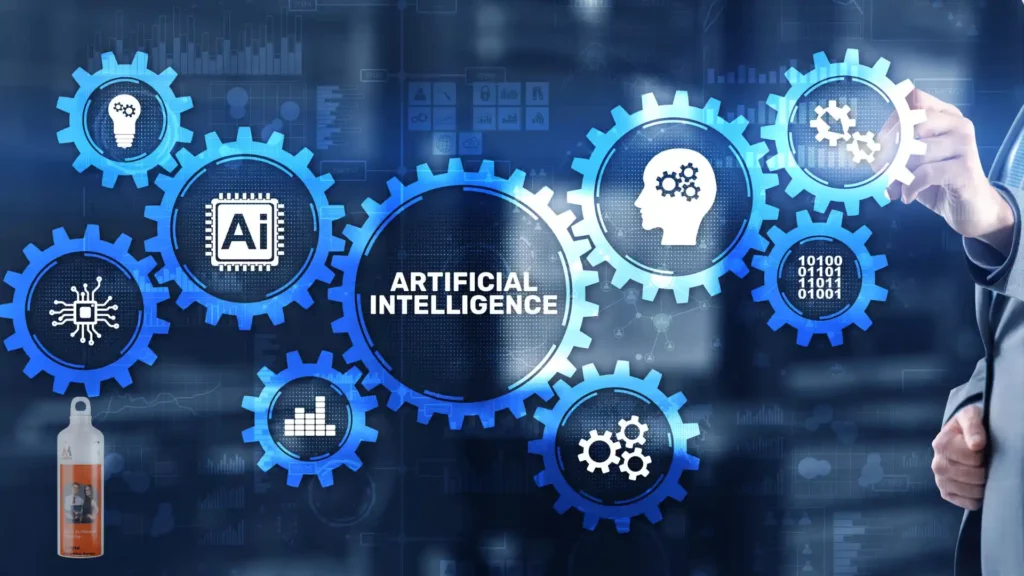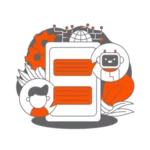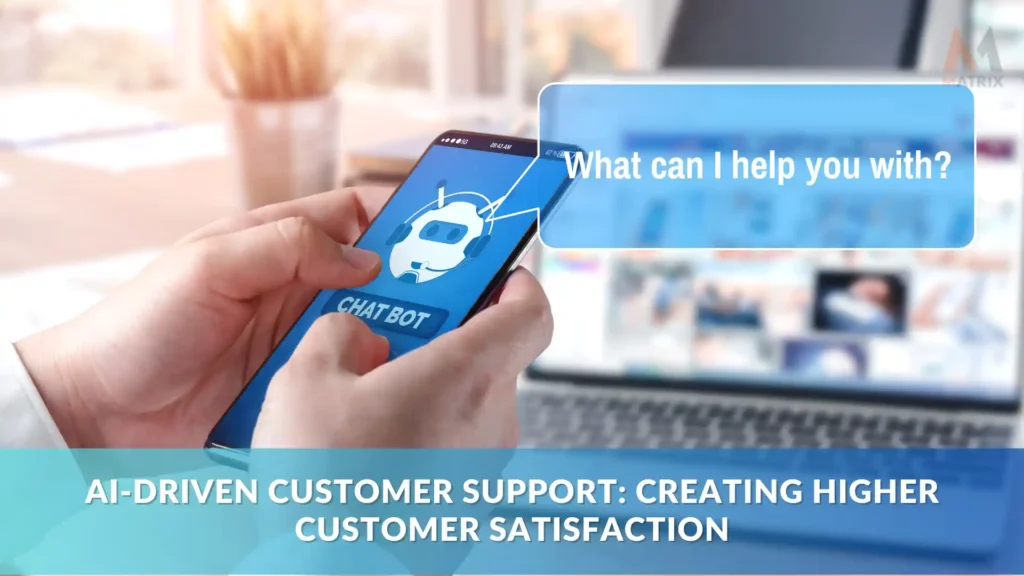AI-driven Customer Support: Creating Higher Customer Satisfaction
Learn about AI-driven Customer Support: Creating Higher Customer Satisfaction
As the CEO of an ambitious and growing company, you know that one of the keys to winning customers is providing outstanding support. After all, customer experience accounts for 81 percent of what drives success in today’s competitive marketplace.
However, providing top-notch service at scale can sometimes be difficult with limited resources and time constraints.
Fortunately, recent advances in artificial intelligence (AI) have enabled businesses like yours to introduce AI-driven customer support initiatives that can vastly improve experiences—in responsiveness and accuracy—without requiring more staff or dedicated personnel.
In this blog post, we’ll explore how AI-driven customer support is revolutionizing businesses and equip you with strategies to adopt AI successfully on your journey toward developing strong customer relationships while staying ahead of the competition.
Introduction to AI

A strong introduction can make or break your message in today’s fast-paced world. Crafting an opening that immediately establishes your authority and commands attention is crucial.
Whether you’re writing a speech, a report, or a social media post, you need to grab your audience’s interest from the get-go.
The trick is to strike the perfect balance between confidence and urgency, delivering a message that informs and motivates action. So save your time. Start your introduction strong, and watch your words ignite a spark of excitement in your listeners or readers.
A. Overview of AI-driven customer support

Artificial intelligence is revolutionizing the customer support industry, and businesses that fail to incorporate this technology will surely fall behind their competitors.
AI-driven customer support provides round-the-clock assistance without human intervention, giving businesses the power to respond to customer inquiries and resolve problems in real time quickly.
AI-powered chatbots and virtual assistants can analyze customer feedback, purchase history, and other data to predict their needs and offer personalized recommendations.
This improves customer satisfaction and frees company resources, allowing employees to focus on other crucial business areas. With AI-driven customer support, companies can provide exceptional customer service, increase efficiency, and succeed in today’s fast-paced digital world.
B. Benefits of using AI in customer support

As businesses strive to provide unparalleled customer service, using artificial intelligence has become a game-changer. With AI, customer support services can now efficiently handle many requests effectively.
This advanced technology has enabled companies to provide round-the-clock assistance to their customers and improve customer satisfaction rates. AI-powered customer support services can analyze customers’ speech, tone, and syntax, ultimately providing them with personalized responses.
Implementing AI has also significantly reduced response times, ensured immediate problem-solving, and left customers feeling heard and valued. Therefore, it is no secret that the benefits of using AI in customer support are bountiful, and companies that still need to adopt this technology should do so urgently.
C. Current market trends and adoption rates
In today’s fast-paced business world, staying ahead of current market trends and adoption rates is crucial for success. As technology evolves at lightning speed, companies that fail to keep up risk being left behind in the dust.
That’s why staying on top of the latest trends is more important than ever, from artificial intelligence to cloud computing.
The good news is that adoption rates of these technologies are rising across the board, and businesses that embrace them have a clear competitive advantage. Take your time – ensure you’re staying ahead of the curve and capitalizing on these trends today.
II. Key components of AI-driven customer support

When it comes to AI-driven customer support, there are some essential components that businesses need to understand. First and foremost, the AI system must clearly understand the customer’s inquiry and provide relevant responses.
This can be achieved through Natural Language Processing (NLP), which allows machines to analyze and interpret human language. Additionally, the AI platform should be able to learn from past interactions to improve and refine responses continuously.
Another crucial aspect is the integration of omnichannel support, which means that customers can reach out to businesses through various platforms, such as social media, email, or messaging apps.
With the rise of AI technology, implementing these components has become essential for businesses to provide efficient and personalized customer support. It’s time to embrace AI as the future of customer service.
A. Chatbots and virtual assistants

As technology advances, chatbots and virtual assistants are becoming an increasingly popular tool for businesses and individuals alike.
These bots are designed to provide fast, efficient support around the clock. With capabilities such as answering customer queries, scheduling appointments, and even placing orders, chatbots and virtual assistants are quickly becoming an essential tools for modern society.
They provide convenience and efficiency that traditional forms of customer support cannot match. Whether you are a small business owner, a busy professional, or someone looking for a helping hand, chatbots and virtual assistants will revolutionize how you work and live.
So why wait? Start exploring the vast world of chatbots and virtual assistants today, and experience the benefits for yourself!
1. Rule-based chatbots
Rule-based chatbots are changing the game when it comes to online customer service. With the ability to understand natural language and provide instant responses, these bots are revolutionizing how businesses interact with their clients.
Companies can ensure that their customers receive consistent, accurate information regardless of the time or day. And with the rise of remote work, the need for reliable digital communication has never been more important.
Why not use this powerful tool and implement a rule-based chatbot for your business today? Your customers will thank you.
2. Machine learning-based chatbots
Chatbots have come a long way in recent years by incorporating machine learning into their design. These advanced chatbots are designed with sophisticated algorithms that enable them to learn from users’ interactions, making them sharper and more effective over time.
These chatbots offer a gamut of benefits, from providing quick and personalized customer support to automating mundane tasks and even identifying fraud.
The demand for machine learning-based chatbots is growing exponentially, and businesses that incorporate them into their operations have a significant edge over competitors. In today’s fast-paced, digital world, it’s essential to invest in innovative and efficient technologies and machine learning chatbots are undoubtedly the way forward.
B. AI-driven knowledge management systems

As businesses collect more and more data, the importance of effective knowledge management cannot be emphasized enough. That’s where AI-driven knowledge management systems offer businesses a powerful tool to make sense of their growing data troves.
With the ability to analyze and categorize data at lightning speed, these cutting-edge systems provide a level of convenience, accuracy, and efficiency that was once unthinkable.
Without a doubt, investing in an AI-driven knowledge management system is no longer a luxury but a necessity in this era of data-driven decision-making. Don’t wait until tomorrow. Act today to ensure your business stays competitive and ahead of the curve.
1. Automatic content generation
The time has come for businesses and content creators to embrace automatic content generation. With advancements in artificial intelligence, technology has come a long way in quickly generating high-quality, relevant, and engaging content.
As a result, organizations can efficiently create a highly targeted, personalized content experience for their customers, regardless of the delivery channel or platform. Gone are the days of endless hours of writing and editing.
Automatic content generation gives businesses a tangible competitive advantage by freeing up time and resources to innovate, execute and scale at an accelerated pace.
Take advantage of your competition leveraging this powerful technology – now is the time to take control and harness the power of automatic content generation.
Be careful ChatGTP4 doesn’t make you a writer.
AI Guide for Executives
All the information about what AI is in industry, how to implement an AI strategy, and the ROI.
2. Content organization and retrieval
In today’s fast-paced world, information overload is a constant struggle. Effective content organization and retrieval are more important now than ever.
If your content is not easy to find, your audience will quickly move on to a competitor who can deliver what they need quickly and seamlessly. As an expert in content organization and retrieval, I can assure you that there are proven strategies that will make your content easily accessible.
With the right tools and techniques, you can be confident that your audience will always find what they want, driving engagement and revenue. Don’t wait – start optimizing your content organization and retrieval now. Your success depends on it.
C. Sentiment analysis and emotion detection
In today’s fast-paced world, it’s becoming increasingly important to understand the sentiment and emotions behind every interaction.
Whether you’re analyzing customer feedback or tracking public opinion on social media, sentiment analysis, and emotion detection can provide key insights that drive business success.
With these powerful tools, you can confidently make data-driven decisions and stay ahead of the curve. Take your time harnessing the power of sentiment analysis, emotion detection, and AI-driven knowledge management. The time to act is now!
1. Text-based sentiment analysis

Text-based sentiment analysis is critical for businesses looking to maintain customer satisfaction and brand reputation. With the rapidly increasing volume of customer feedback on social media and other online platforms, it is more important than ever to quickly and accurately analyze the sentiments expressed in these texts.
By using advanced algorithms and Natural Language Processing (NLP) techniques, businesses can get real-time insights into customer opinions and preferences, identify potential issues before they escalate, and respond quickly and effectively to customer feedback.
In today’s fast-paced digital world, the ability to analyze text-based sentiment is more than just a nice-to-have. It’s a must-have.
2. Voice-based emotion detection
Voice-based emotion detection is a cutting-edge technology with immense potential in various fields. With the ability to detect the tone and pitch of someone’s voice, this technology has opened up new possibilities in areas such as psychology, healthcare, and education.
It can help therapists gauge the emotional state of their patients or help educators understand students’ learning curves by analyzing their responses. The possibilities are endless, and as more research is done on this technology, more people will appreciate its significance.
The future belongs to those who embrace this technology, and those who hone their skills in this field will undoubtedly be the leaders of tomorrow.
D. Predictive analytics
In today’s fast-paced world, businesses must stay ahead of the curve to remain competitive. That’s where predictive analytics comes in.
This powerful tool allows businesses to analyze past and current data to predict future trends and potential outcomes. This isn’t just a nice-to-have; it’s a must-have. By leveraging predictive analytics, businesses can make decisions with greater confidence and accuracy, ultimately driving better results.
So if you want to stay ahead of the game, it’s time to start investing in predictive analytics – and fast. The future of your business may depend on it.
1. Customer behavior prediction
As businesses compete to stand out in today’s crowded market, understanding customer behavior has become more critical than ever. Predicting the actions and preferences of customers can help companies tailor their marketing strategies and improve customer satisfaction.
But how can businesses accurately predict customer behavior? Companies can better understand their customer’s needs and desires through in-depth analysis of customer data and the implementation of advanced analytical tools.
With a confident and authoritative approach, businesses can identify trend patterns and use that knowledge to create compelling marketing campaigns that drive sales and improve customer loyalty. The urgency to implement these strategies is more paramount than ever, as companies that fail to adapt are at risk of falling behind their competitors.
2. Support ticket prioritization
Regarding support ticket prioritization, there is no time to waste. As a company, it’s crucial to have a system that allows you to quickly and confidently decide which issues need immediate attention. With proper prioritization, your support team could save valuable time on low-priority tickets while urgent issues go unresolved.
So, take the time to establish a clear set of criteria for prioritizing support intelligent ticketing systems and empower your team to act on them decisively. Remember, every minute counts when it comes to customer satisfaction and retention.
All in all, AI-driven customer support is a powerful force for customer satisfaction and better customer experiences.
With AI-powered chatbots and virtual assistants, the content generated and organized with knowledge management systems, sentiment analysis, emotion detection, and predictive analytics, businesses can ensure that their customers have easy access to the tailored support they need when it matters most.
Businesses must take advantage of the cost-saving opportunities of adopting AI into their customer support teams as AI looks set to become an essential part of any customer services strategy – read more about how to create the ideal customer profile for lead generation now!
The gains are immense – not just in reducing costs but also in creating positive emotions throughout the entire customer journey. If they wish to stay ahead of the competition, investing in AI-driven solutions should be at the top of any company’s priority list.
How Do Matrix Marketing Group and HubSpot Leverage AI-driven Customer Support
Matrix Marketing Group and HubSpot leverage AI-driven customer support strategies to provide outstanding customer service. Matrix Marketing Group has adopted an ai customer service chatbot that can handle 80% of customer inquiries.
The best AI customer service technology is used. Matrix supports conversational AI, AI-powered self-service systems, and omnichannel support.
This allows them to respond quickly and accurately to customer requests, providing a seamless customer experience. Matrix Marketing Group utilizes sentiment analysis and emotion detection technology to understand its customers’ needs and wants better. This helps them tailor their marketing campaigns more effectively, increasing the chances of conversions.
HubSpot is also taking advantage of AI-driven customer support solutions. Customers can access personalized support through virtual assistants and conversational bots, allowing them to quickly get answers to their questions or resolve issues they have come across.
They also have implemented knowledge management systems that store frequently asked questions in a database for easy access by agents and customers alike. This ensures agents can quickly resolve issues without repeating themselves repeatedly, decreasing agent frustration and reducing average handle times for customers.
HubSpot has invested heavily in predictive analytics solutions that allow them to analyze past trends and make decisions with greater insight into the industry’s future.
This gives HubSpot a competitive edge when responding to market changes, allowing for quicker adaptation times than other competitors in the field. Our AI customer service example allows us to deliver a consistent, high-quality customer experience with fewer resources and in less time.
Our AI-enabled marketing campaigns provide an enhanced level of personalization that can help you increase engagement and conversions. With Matrix Marketing Group, you get the power of artificial intelligence working for your business.
The future of AI in customer service today is wide open and the benefits of AI in customer service are being realized.
Did you know natural language processing (NLP) drives machine learning support?
By leveraging our 7 industry-focused AI-enhanced support solutions, Matrix Marketing Group and HubSpot can provide exceptional customer experiences with higher customer satisfaction ratings.
General FAQs
How can AI-driven customer support help businesses improve their customer service?

AI-driven customer support can help businesses improve customer service by providing faster and more accurate customer responses. AI-powered chatbots and virtual assistants can quickly answer frequently asked questions, freeing up agents’ time for more complex tasks; knowledge management systems store frequently asked questions for easy access; sentiment analysis and emotion detection tools provide insight into the wants and needs of customers; and predictive analytics allows businesses to make better decisions based on past trends. All of these solutions together create a strong foundation for improved customer service.
What benefits do AI-driven customer support solutions provide?

AI-driven customer support solutions offer numerous benefits, including reduced costs due to automation, improved customer satisfaction ratings due to tailored responses, faster average handle times through quick answers, and greater insight into market changes through predictive analytics. It also gives agents more freedom to focus on other tasks, reducing frustration while providing excellent service.
What are some examples of AI-driven customer support solutions?

Examples of artificial intelligence support solutions include chatbots and virtual assistants that can be used for quick answers to frequently asked questions; knowledge management systems that store FAQs in databases for easy access; sentiment analysis tools that analyze language to detect customers’ emotions or needs; and predictive analytics technologies which use historical data to predict future trends.
How have Matrix Marketing Group and HubSpot implemented AI in their customer services strategies?

Matrix Marketing Group has adopted an AI-powered chatbot that can handle 80% of customer inquiries. Additionally, they utilize sentiment analysis and emotion detection technology to better understand their customers’ needs and tailor their marketing campaigns accordingly. HubSpot’s virtual assistants and conversational bots provide personalized support quickly, while knowledge management systems store FAQs in a database for easy access by agents and customers alike. They also leverage predictive analytics solutions that give them greater insight into the industry’s future, giving them a competitive edge when responding to market changes.

